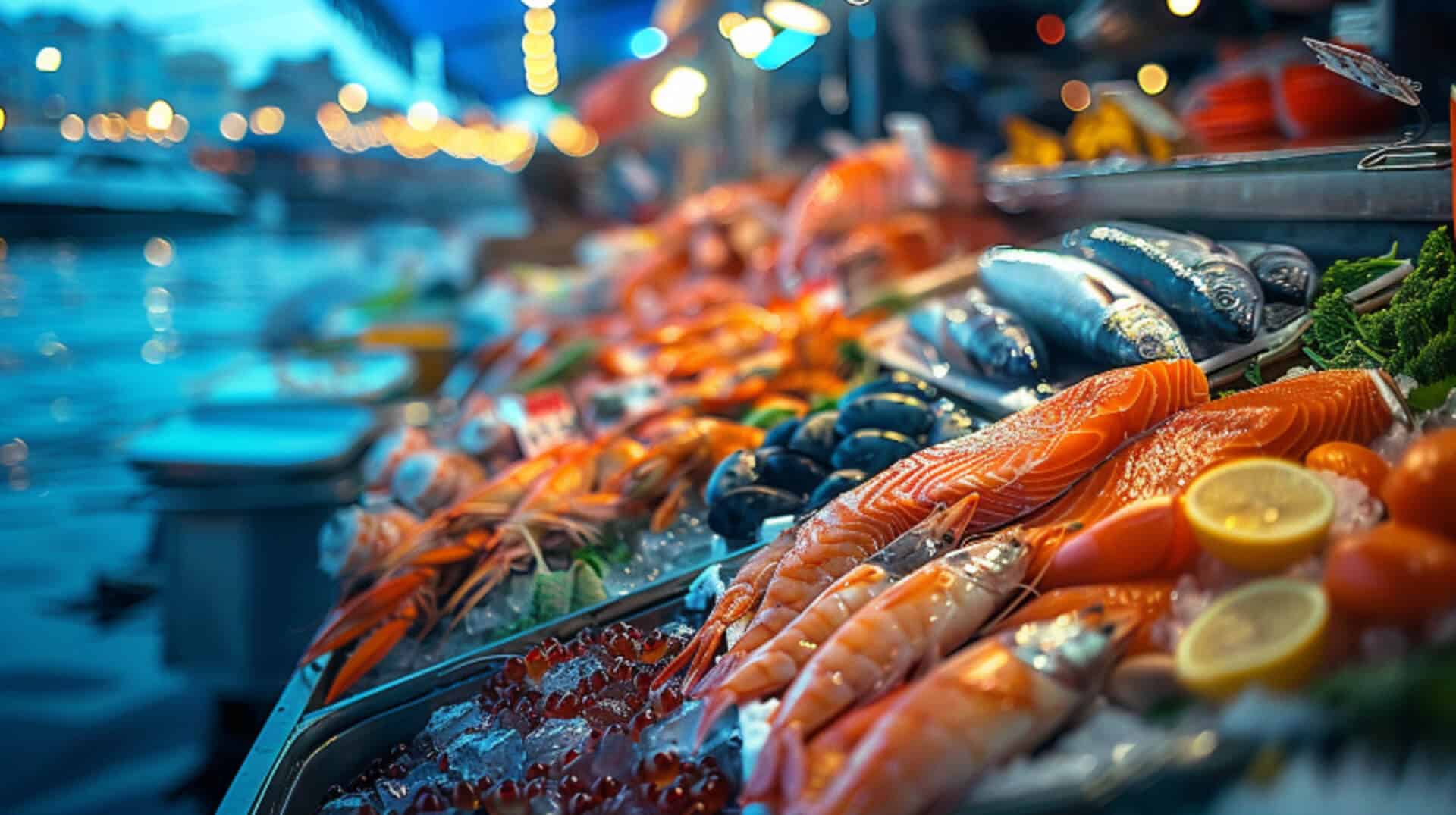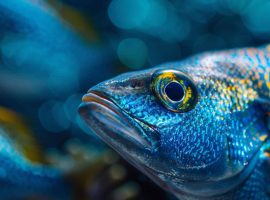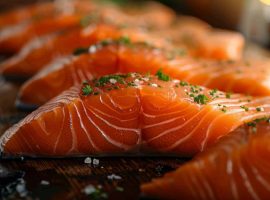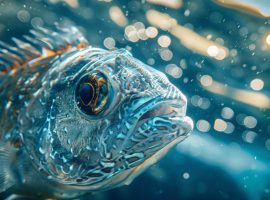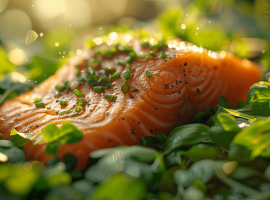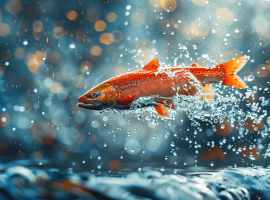Iodine Significance in Dietary Health
Iodine is a trace element pivotal for the synthesis of thyroid hormones, which are crucial for regulating metabolism, growth, and energy production. The body’s reliance on iodine for the production of thyroxine (T4) and triiodothyronine (T3) underscores its significance. These hormones are integral to various physiological processes, including brain development, particularly during foetal and early childhood stages.
The Role of Iodine in Thyroid Function and Metabolism
The thyroid gland, located at the base of the neck, is the primary site of iodine utilisation. It absorbs iodine from the bloodstream to produce T4 and T3, hormones that influence the metabolic rate, heart function, digestion, and muscle control. An adequate supply of iodine is essential for the thyroid to function optimally.
Cognitive Development and Brain Health
Iodine’s contribution to cognitive health is most critical during pregnancy and infancy, as it supports the development of the nervous system. Deficiencies during these stages can lead to learning difficulties and decreased intellectual capacity.
Consequences of Iodine Deficiency
Insufficient iodine intake can lead to hypothyroidism, characterised by symptoms such as fatigue, weight gain, and cold intolerance. In severe cases, it can cause goiteran enlargement of the thyroid gland. Globally, iodine deficiency remains a significant cause of preventable intellectual disability.
Identifying Iodine-Rich Fish Varieties
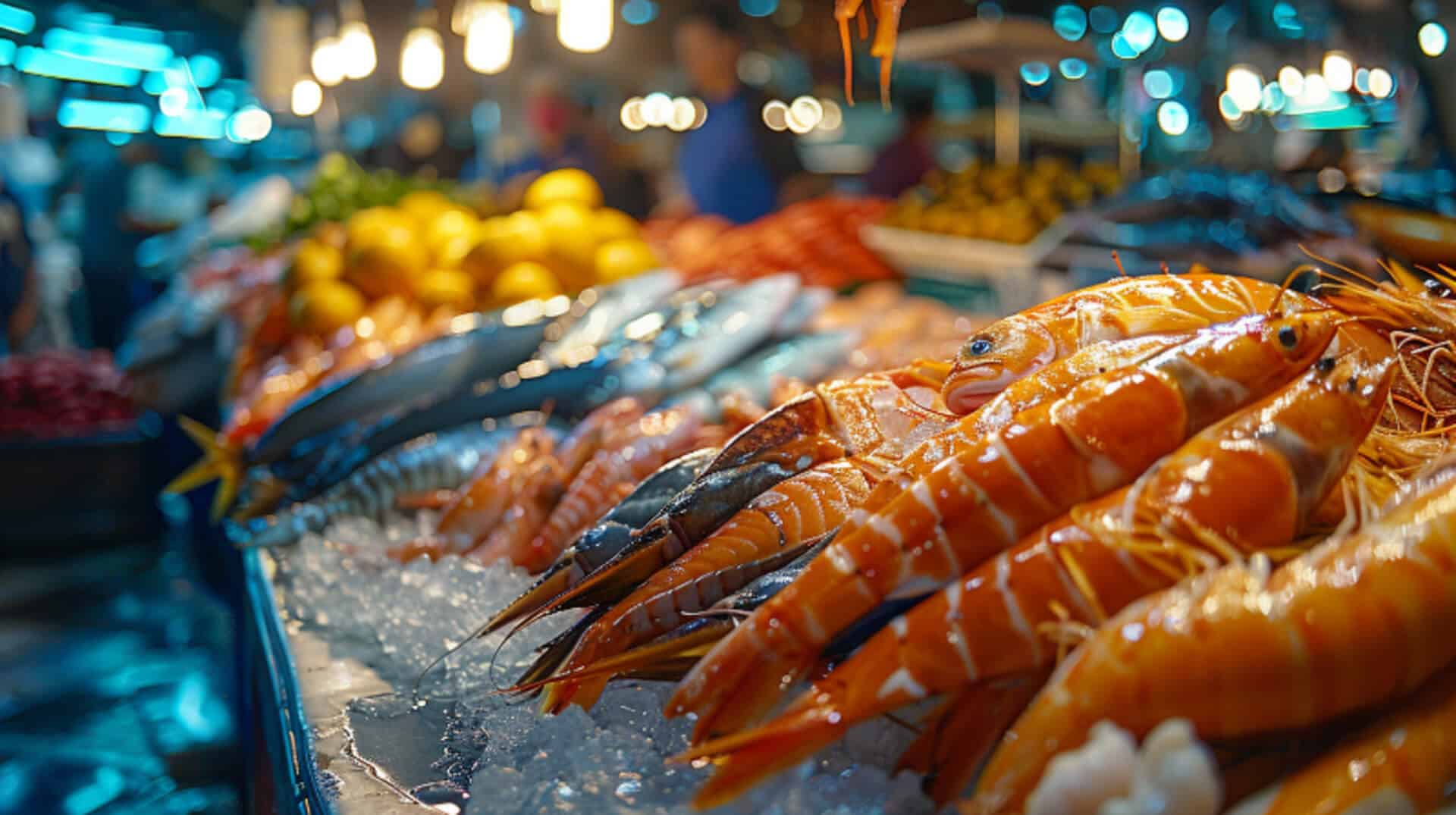
When seeking to enhance your diet with iodine-rich fish, certain species stand out for their substantial iodine content. Cod, tuna, and shrimp are exemplary choices, each offering a significant dose of this essential nutrient. Marine fish, in general, tend to have higher iodine levels compared to their freshwater counterparts due to the iodine-rich nature of their habitat.
Marine vs. Freshwater Fish Iodine Content
The marine environment, with its abundance of naturally occurring iodine, imbues sea-dwelling fish with higher iodine concentrations. Freshwater species, while still beneficial, typically contain less iodine, making marine fish the superior source for this mineral.
Shellfish and Fish: A Comparison
Shellfish, such as oysters and mussels, are particularly noted for their high iodine content, often surpassing that of other fish. This makes them an excellent choice for those looking to increase their iodine intake.
Recommendations for Iodine Intake
For individuals aiming to boost their iodine levels, incorporating fish like haddock, pollock, and sea bass is recommended. These species are not only rich in iodine but also offer a variety of other nutrients, contributing to a well-rounded diet.
Balancing Iodine Intake and Mercury Exposure
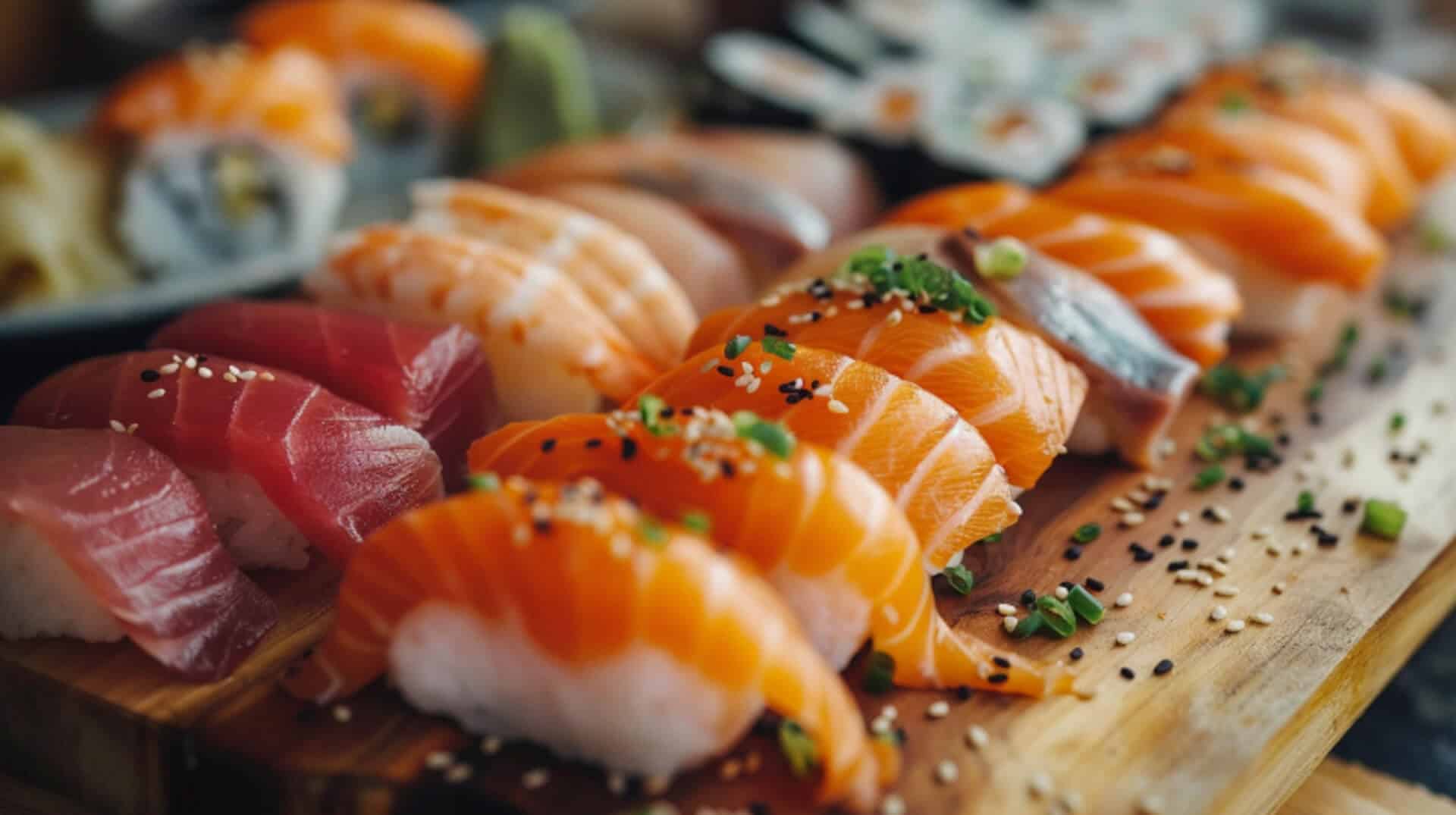
Navigating the delicate balance between iodine intake and mercury exposure is crucial for consumers. To mitigate mercury risks while reaping the iodine benefits from fish, one should prioritise species known for lower mercury levels. Salmon, sardines, and trout, for instance, are typically safer choices.
Advisories for Pregnant Women
Pregnant women are advised to be particularly cautious, as mercury can adversely affect foetal development. The American Academy of Paediatrics and other health authorities recommend that pregnant women consume up to 12 ounces a week of low-mercury fish to maintain iodine levels without risking mercury exposure.
Optimal Fish Selection for Iodine and Mercury Balance
Fish such as haddock, pollock, and catfish offer an optimal balance of high iodine content with minimal mercury risk. These species are suitable for regular consumption, contributing to the recommended dietary intake of iodine.
Frequency of Fish Consumption
For the general public, incorporating fish into the diet two to three times per week aligns with the American Heart Association’s guidelines for iodine intake and heart health, while also keeping mercury exposure within safe limits.
Nutritional Profiles of Top Iodine Sources
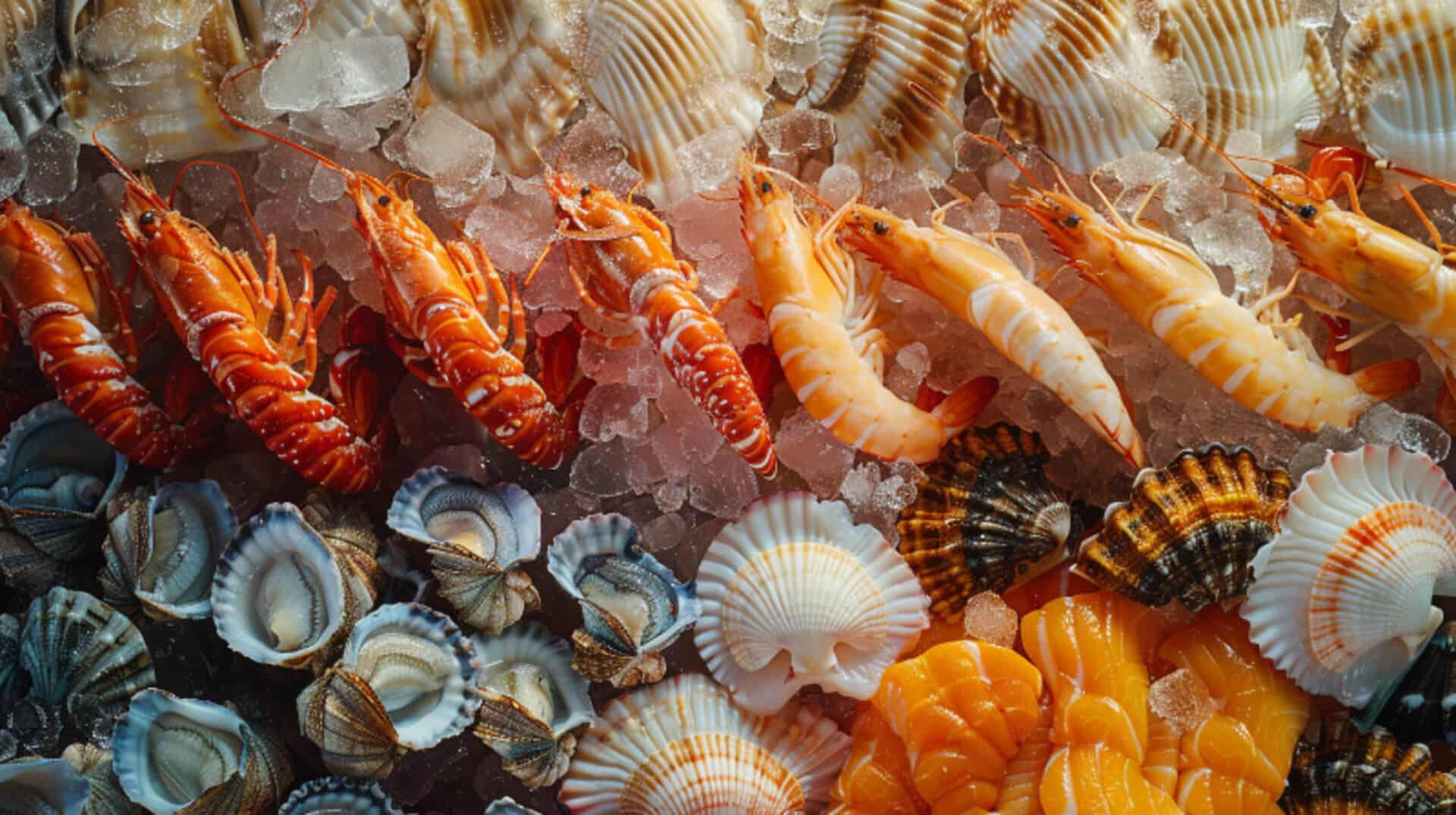
Understanding the iodine levels in various fish species is key to optimising your dietary intake. For instance, a 3-ounce serving of baked cod can provide approximately 99 micrograms of iodine, which is a substantial part of the recommended daily intake.
Iodine Content and Cooking Methods
The method of cooking fish can influence its iodine content. While boiling may cause some iodine to leach into the cooking water, baking or grilling preserves most of the mineral. It’s beneficial to incorporate a variety of cooking methods to maintain a diet rich in iodine.
Complementary Nutrients in Fish
Fish are not only a source of iodine but also contain omega-3 fatty acids, essential for heart and brain health, and vitamins D and B2. These nutrients work synergistically to support overall well-being.
Interpreting Seafood Nutritional Information
When selecting seafood, it’s important to read packaging labels for nutritional content. Look for information on iodine levels, and consider the source of the fish, as wild-caught options may have different nutritional profiles compared to farmed varieties.
Sustainable Seafood and Iodine Content
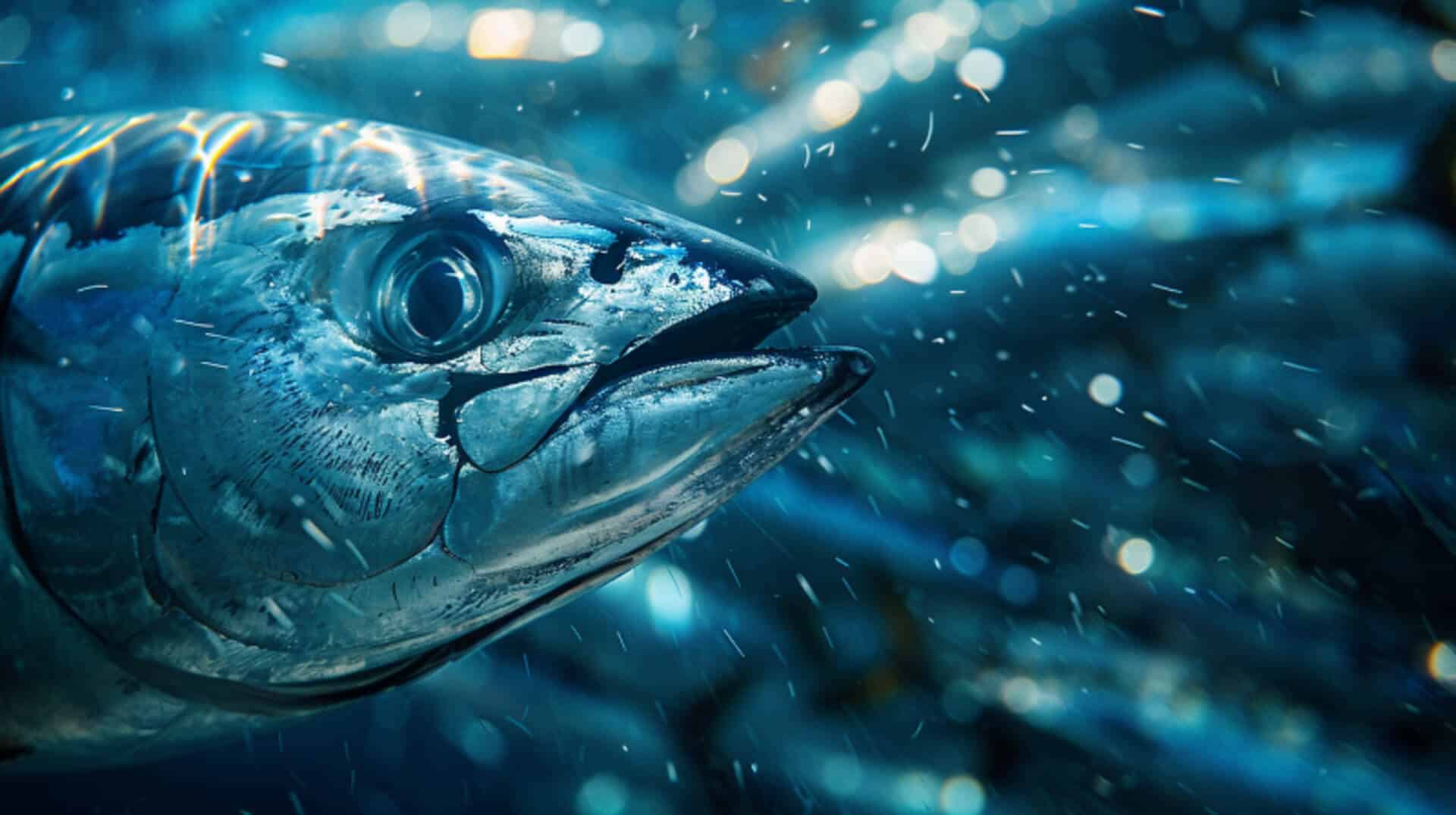
Sustainable sourcing is pivotal when selecting iodine-rich fish, as it ensures the long-term viability of marine ecosystems and the species that inhabit them. The sustainability of fish directly influences its iodine levels, as overfishing and environmental degradation can deplete nutrients from the marine food chain.
Impact of Sustainability on Iodine Levels
Sustainably sourced fish are more likely to have consistent iodine levels. Practices such as responsible feed management in aquaculture and the preservation of natural habitats in wild-catch fisheries contribute to maintaining the natural iodine content in fish.
Best Practices for Sourcing Iodine-Rich Seafood
To source sustainable and iodine-rich seafood, one should look for certifications from reputable organisations like the Marine Stewardship Council (MSC). These certifications indicate that the seafood has been sourced with practices that protect fish populations and their environments.
Frozen Fish Direct’s Commitment to Sustainability
Frozen Fish Direct, a UK-based family-owned company, ensures sustainability by offering products that are frozen at sea, which not only retains nutrient quality but also supports sustainable fishing practices. Their mission encompasses both the provision of quality seafood and the commitment to environmental stewardship.
Dietary Recommendations for Iodine Intake
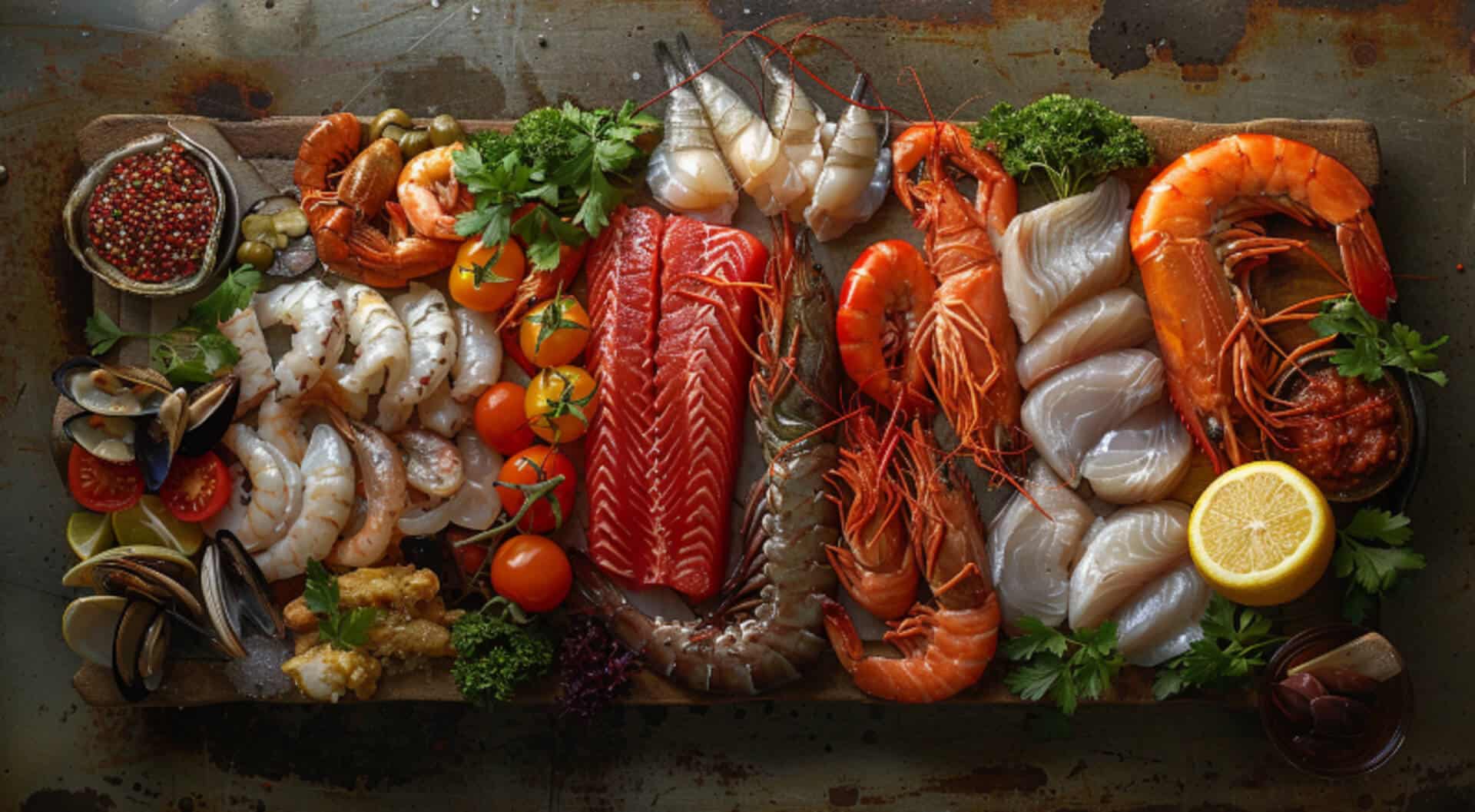
The dietary guidelines for iodine intake suggest that adults consume 150 micrograms per day, while pregnant and breastfeeding women require higher amounts. Fish, as a rich source of iodine, plays a vital role in meeting these dietary needs.
Fish Consumption and Iodine Guidelines
Incorporating fish into one’s diet is an effective way to fulfil the body’s iodine requirements. The American Heart Association recommends eating two servings of fish per week, particularly fatty fish high in omega-3 fatty acids, which also contribute to heart and brain health.
Tailoring Fish Intake for Iodine Needs
To tailor fish consumption to individual iodine needs, consider the following:
- Selecting Iodine-Rich Fish: Opt for fish known for high iodine content, such as cod, tuna, and shrimp.
- Frequency of Consumption: Aim for at least two seafood meals per week to align with heart health and iodine intake recommendations.
- Diverse Selection: Include a variety of fish in your diet to balance iodine intake and reduce the risk of mercury exposure.
By choosing the right fish and consuming it regularly, you can ensure adequate iodine intake for optimal health.
Cooking Techniques to Maximise Iodine Retention
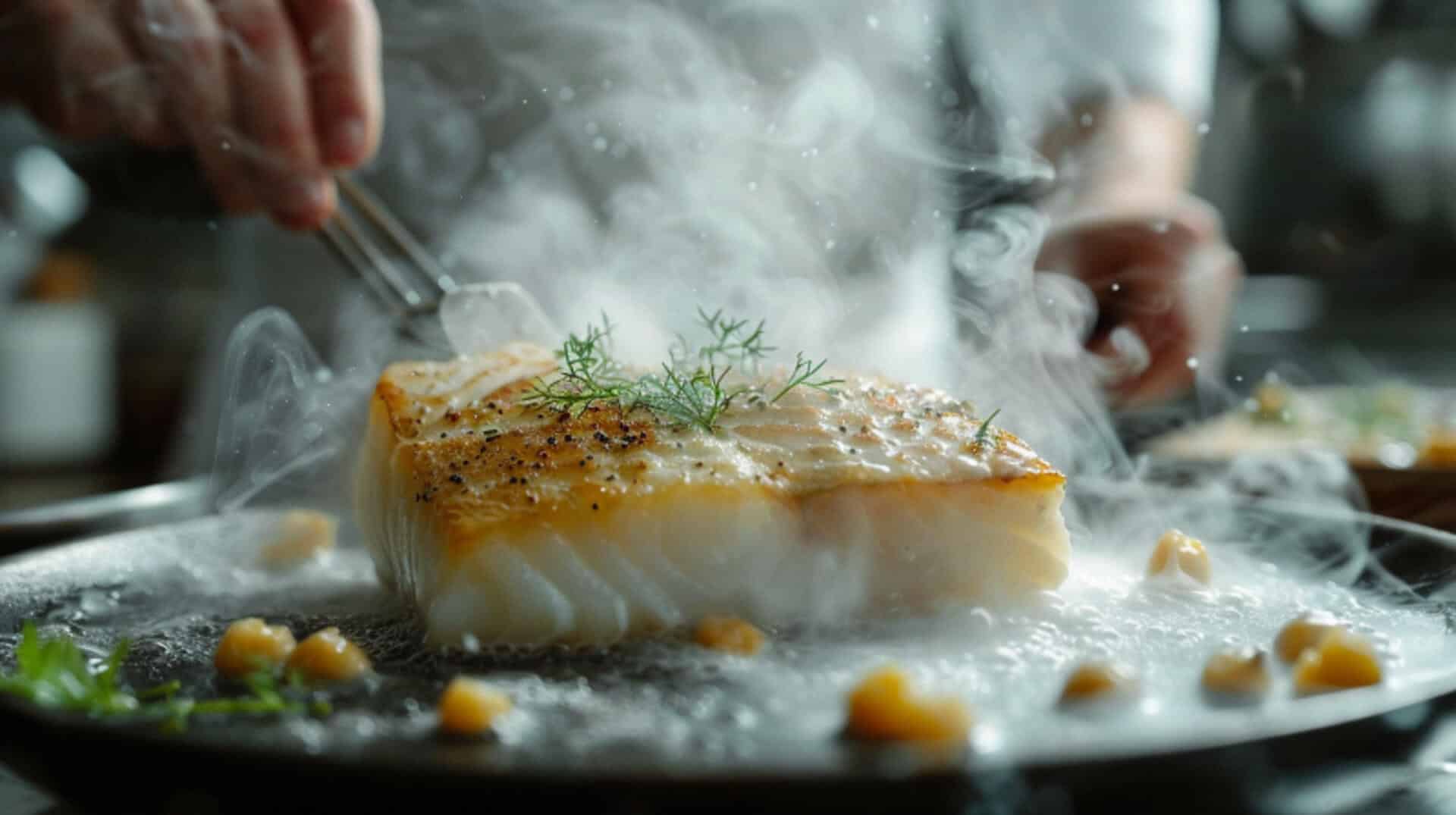
To maximise iodine retention in fish, certain cooking methods are more effective than others. The preparation of fish plays a significant role in preserving this essential mineral.
Preserving Iodine Through Cooking Methods
- Steaming and Baking: These methods are preferable for retaining iodine. Steaming fish above water prevents iodine from leaching, while baking conserves nutrients within the flesh.
- Avoid Boiling: Boiling fish can cause iodine to dissolve into the cooking water, reducing the amount retained in the fish.
Enhancing Iodine Content During Cooking
- Use of Iodized Salt: Incorporating iodized salt in recipes can help compensate for any potential iodine loss during cooking.
- Combining with Iodine-Rich Ingredients: Adding ingredients like seaweed or dairy products to fish dishes can boost the overall iodine content of the meal.
By selecting appropriate cooking methods and ingredients, you can ensure that the iodine content of your seafood is preserved, contributing to a nutrient-rich diet.
Alternative Iodine Sources for Dietary Restrictions
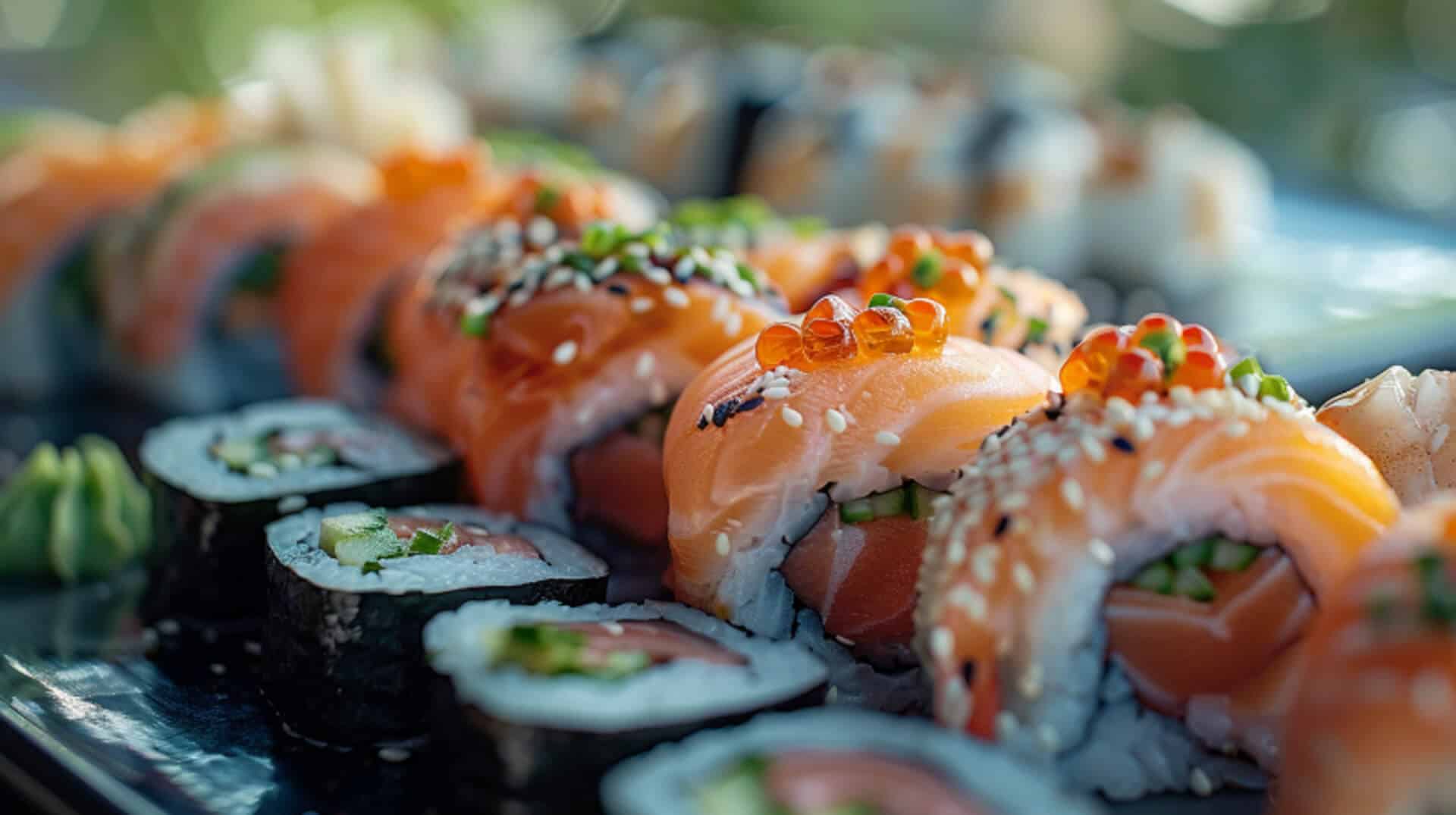
For those with dietary restrictions, ensuring adequate iodine intake requires consideration of non-fish sources. Vegetarians, vegans, and individuals with seafood allergies can maintain sufficient iodine levels through alternative dietary choices.
Vegetarian and Vegan Iodine Sources
- Iodized Salt: A staple in many diets, iodized salt is an easy way to add iodine to meals.
- Dairy Products: Milk and yoghourt are good sources of iodine, particularly for vegetarians.
- Eggs: They provide a valuable contribution to iodine intake for those who include them in their diet.
Fortified Foods and Iodine Supplementation
- Bread and Cereals: Many are fortified with iodine, offering another avenue for intake.
- Supplements: Iodine supplements can be a direct method to address deficiencies, though they should be used under medical guidance to avoid excessive intake.
Optimising Plant-Based Diets
- Seaweed: A potent source of iodine, seaweed can be incorporated into a variety of dishes.
- Fruits and Vegetables: The iodine content in plant foods depends on the soil quality where they are grown. Consuming a diverse range of produce can help ensure adequate intake.
By including these iodine-rich foods and considering fortification and supplementation when necessary, individuals with dietary restrictions can achieve a balanced intake of this essential nutrient.
Understanding Iodine Absorption and Bioavailability
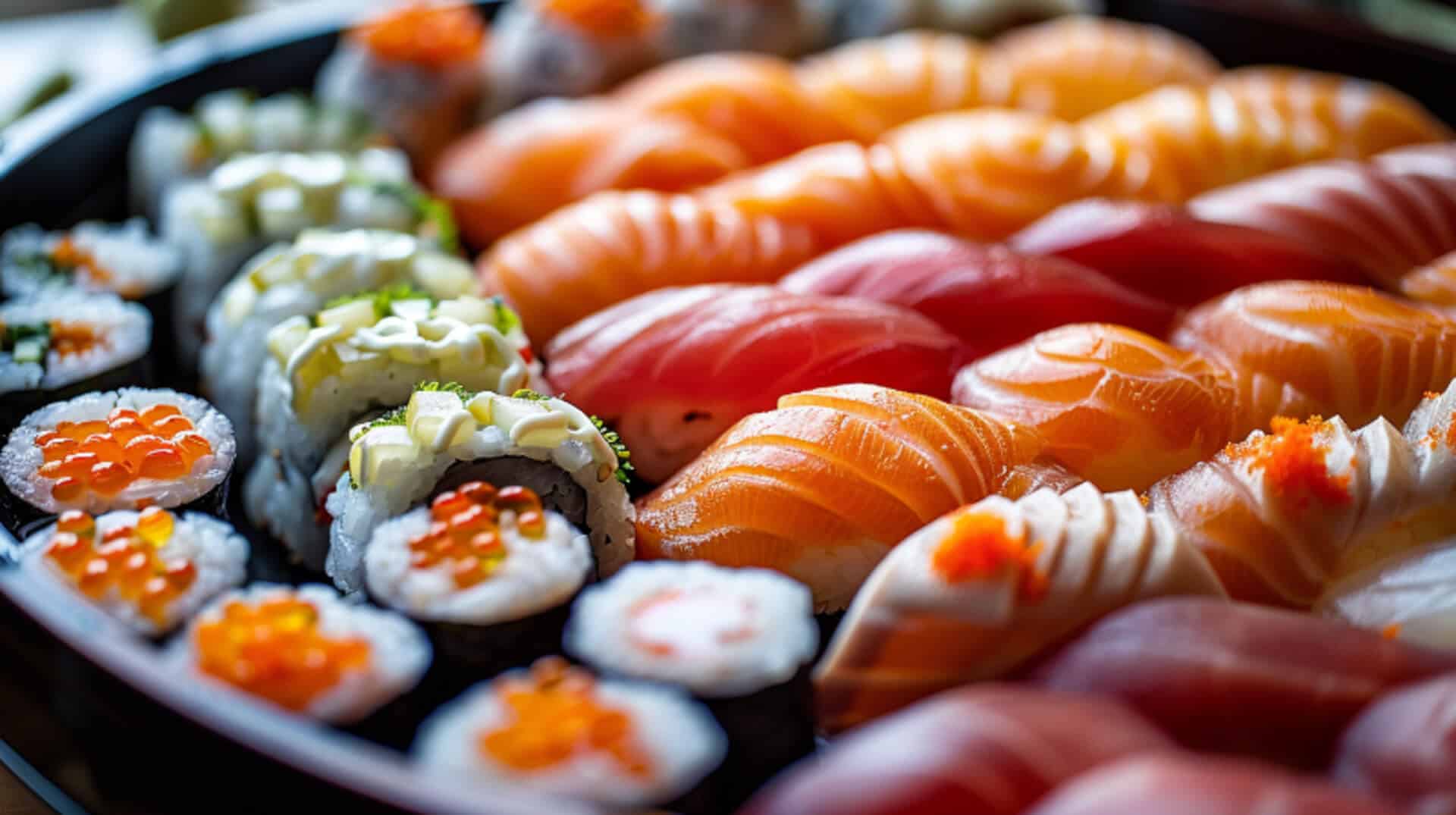
The bioavailability of iodine from fish is influenced by several factors, including the fish’s diet, the iodine content of the water it inhabits, and the method of food preparation. The human body absorbs iodine through the gut, and it is utilised by the thyroid gland to produce essential hormones.
Factors Affecting Iodine Bioavailability
- Diet of the Fish: Fish that consume iodine-rich diets will have higher levels of bioavailable iodine.
- Water Iodine Content: Fish living in iodine-rich waters absorb more of the mineral, which is then available to you upon consumption.
Human Absorption and Utilisation of Iodine
- Gastrointestinal Absorption: Iodine is absorbed in the stomach and small intestine and transported to the thyroid gland.
- Thyroid Utilisation: The thyroid gland uses iodine to synthesise thyroxine (T4) and triiodothyronine (T3), crucial hormones for metabolism and growth.
Conditions Impacting Iodine Absorption
Certain health conditions, such as gastrointestinal disorders, can impair the absorption of iodine. It is important to manage these conditions to maintain adequate iodine levels.
Maximising Dietary Iodine
To ensure the most bioavailable iodine intake from your diet:
- Choose Iodine-Rich Fish: Opt for species known for high iodine content, such as cod and tuna.
- Consider Cooking Methods: Favour methods that preserve iodine, such as baking or steaming, over boiling.
- Monitor Health Conditions: Be aware of any personal health issues that may affect iodine absorption and consult healthcare providers for tailored advice.
Addressing Iodine Deficiency Through Diet
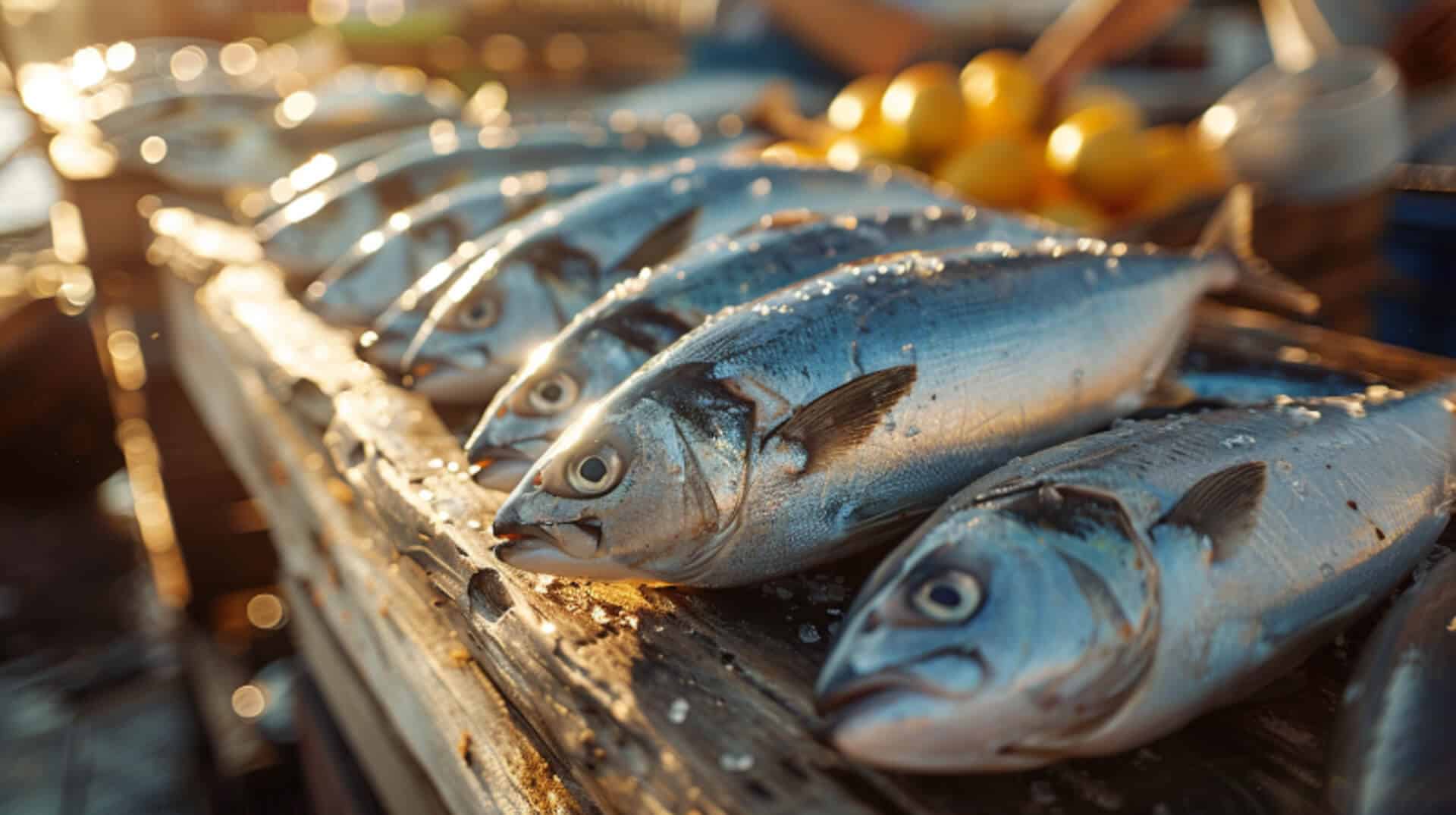
Iodine deficiency can manifest in various symptoms, including fatigue, weight gain, and a swelling in the neck known as a goitre. To counteract this deficiency, incorporating iodine-rich fish into your diet is a strategic move.
Recognising Iodine Deficiency
- Fatigue and Weakness: Persistent tiredness despite adequate rest may indicate low iodine levels.
- Unexpected Weight Gain: Difficulty in managing weight could be a symptom of an underactive thyroid due to iodine scarcity.
- Goitre Formation: An enlarged thyroid gland, visible as a neck swelling, often signifies iodine deficiency.
Enhancing Iodine Intake with Fish
- Regular Consumption: Including fish like cod, tuna, and shrimp in your diet two to three times a week can significantly boost iodine levels.
- Diverse Selection: Opting for a variety of seafood ensures a broader intake of iodine and other essential nutrients.
Public Health Initiatives
Public health measures to combat iodine deficiency include:
- Iodized Salt Programmes: Encouraging the use of iodized salt in cooking and food manufacturing.
- Educational Campaigns: Raising awareness about the importance of iodine in the diet and how to obtain it.
Contribution of Frozen Fish Direct
Frozen Fish Direct aids in addressing dietary iodine deficiency by:
- Providing Iodine-Rich Options: Offering a selection of frozen fish known for high iodine content.
- Ensuring Nutrient Retention: Utilising freezing techniques at sea to preserve the iodine and other nutrients in their seafood products.
Incorporating Iodine-Rich Fish into Meal Planning
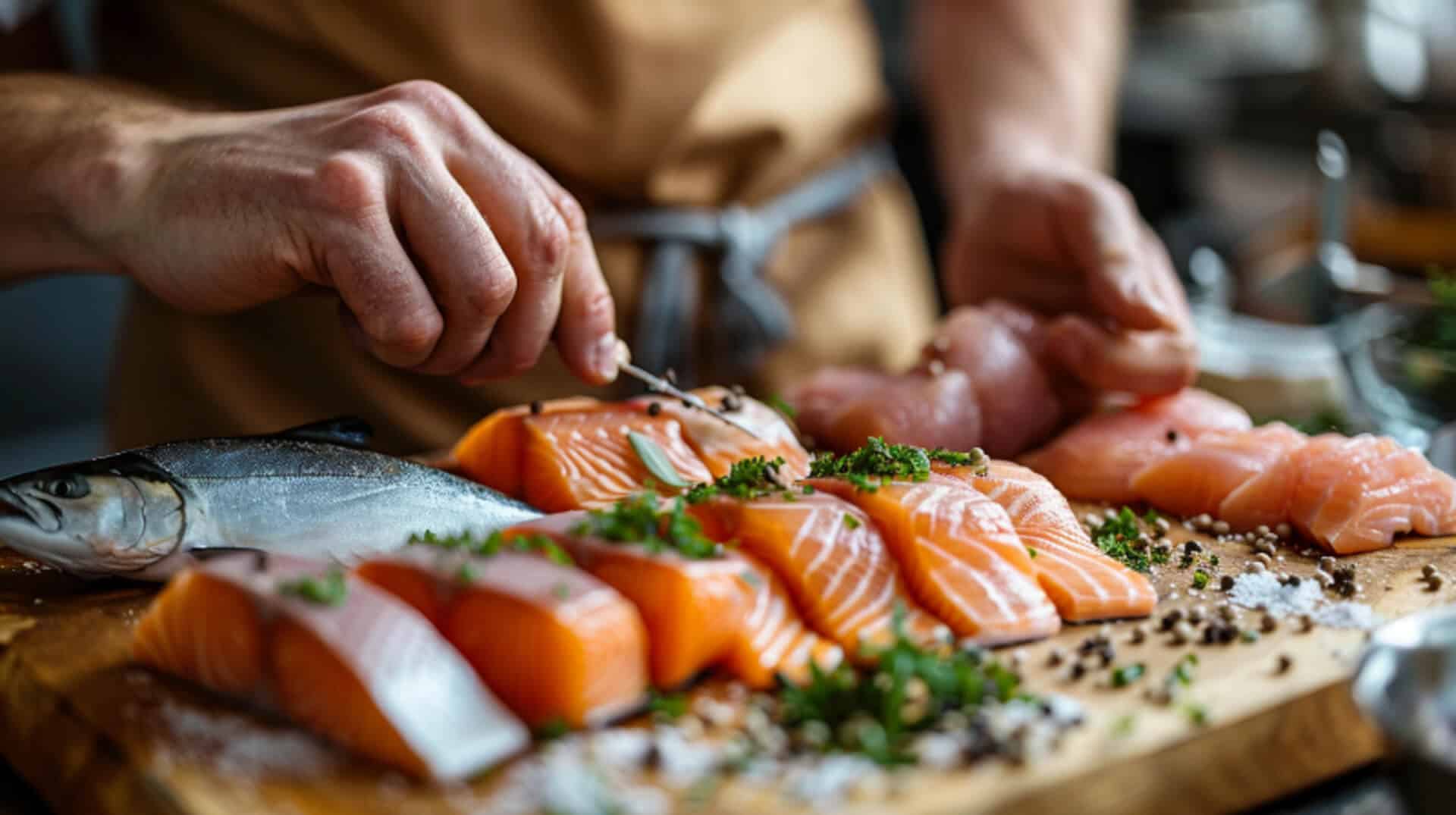
Incorporating iodine-rich fish into your diet need not be a complex task. With a variety of fish available from Frozen Fish Direct, you can easily add this essential nutrient to your meals.
Simple and Nutritious Recipes
- Grilled Cod with Lemon Butter: A quick dish that pairs the mild flavour of cod with a tangy lemon butter sauce.
- Tuna Salad: Ideal for sandwiches or as a standalone meal, combining canned tuna with fresh vegetables and a light dressing.
Meal Incorporation Strategies
- Breakfast: Start your day with a smoked salmon omelette, rich in iodine and protein.
- Lunch: A tuna salad provides a midday boost of iodine.
- Dinner: Bake or grill a fillet of haddock or pollock for a satisfying evening meal.
Meal Prepping with Iodine-Rich Fish
- Batch Cooking: Prepare portions of fish at the beginning of the week to use in various dishes.
- Freezing: Utilise Frozen Fish Direct’s offerings to stock up on iodine-rich fish, ready to be thawed and cooked at your convenience.
Frozen Fish Direct assists in diversifying meal options by providing a wide selection of frozen fish, ensuring you have access to iodine-rich seafood year-round.
Discovering Iodine Content with Frozen Fish Direct
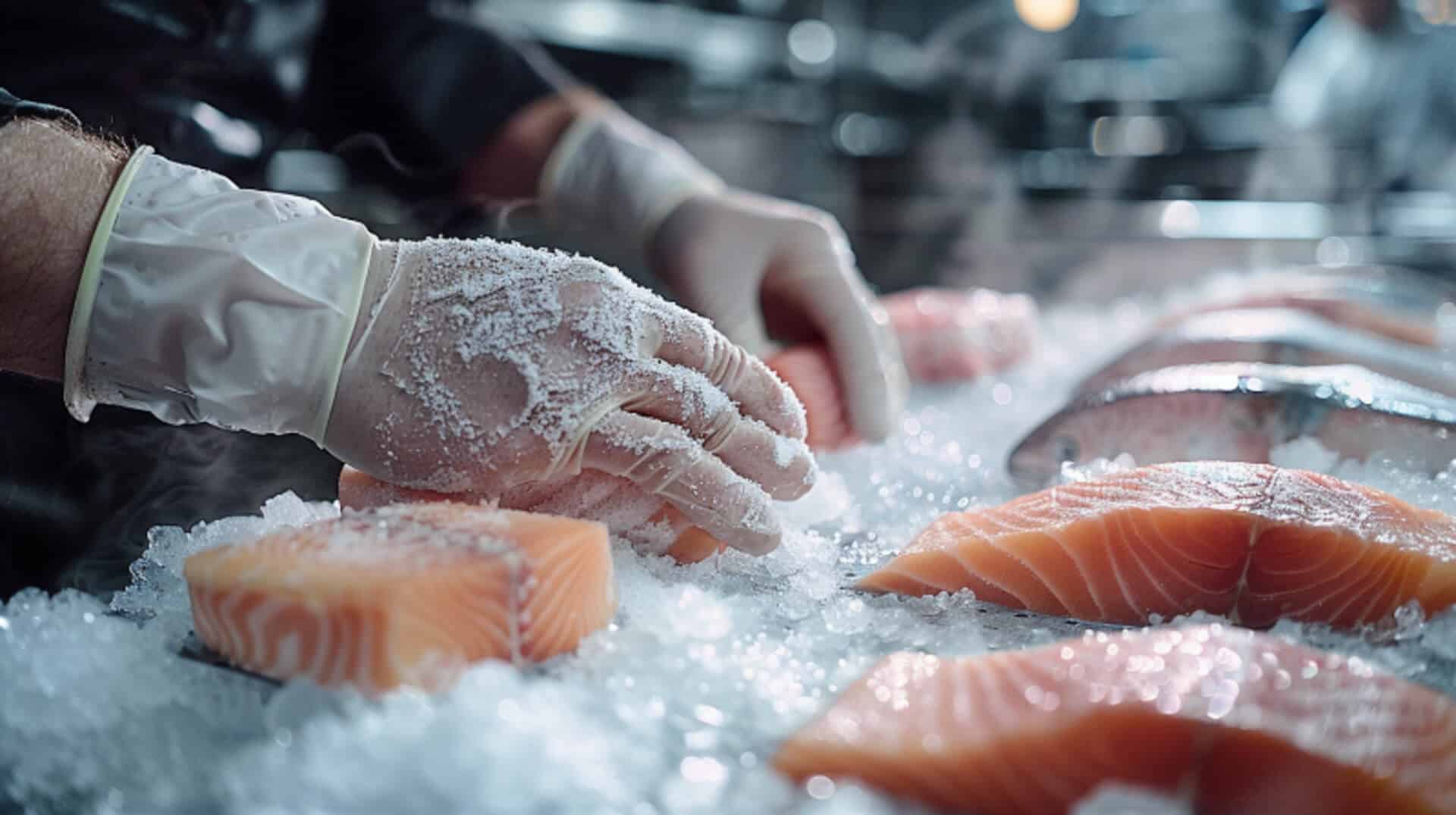
For consumers interested in the iodine content of seafood, Frozen Fish Direct provides detailed product information. Each item in their extensive selection of over 200 frozen fish products includes specific nutrient profiles, ensuring you can make informed choices about your iodine intake.
Services for Informed Seafood Selection
Frozen Fish Direct offers:
- Nutritional Information: Access to comprehensive data on the iodine content of their seafood.
- Customer Service: Expert advice on selecting the best fish for your dietary needs.
Personalised Dietary Advice
Should you require guidance on incorporating iodine-rich fish into your diet, Frozen Fish Direct’s customer service team is available to assist. They can provide:
- Tailored Recommendations: Based on your health goals and preferences.
- Preparation Tips: To maximise the nutritional benefits of your seafood.
Commitment to Quality and Nutrition
Frozen Fish Direct is committed to:
- Quality Assurance: Ensuring all seafood is frozen at sea to preserve nutrients.
- Sustainable Sourcing: Offering products that align with responsible fishing practices.
To learn more about their offerings or to seek personalised advice, customers are encouraged to contact Frozen Fish Direct directly through their website or customer service hotline.
